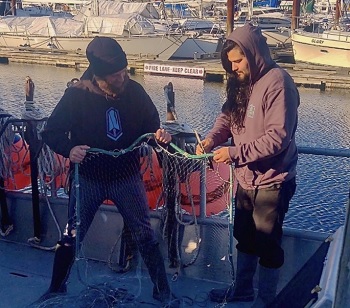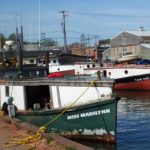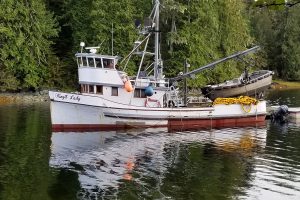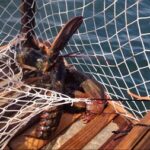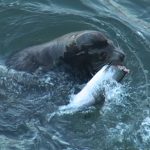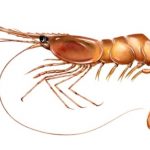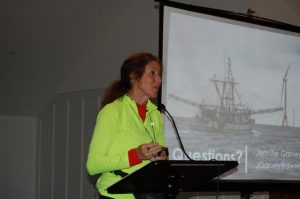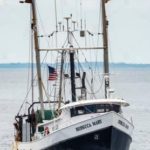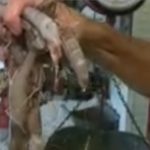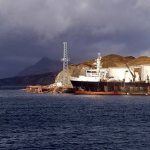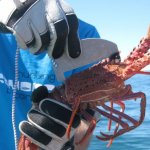Tag Archives: DFO
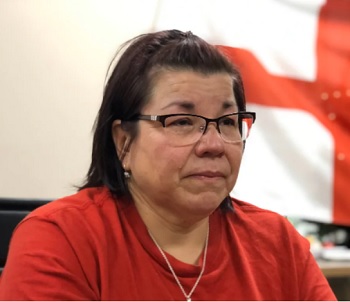
Pictou Landing to operate DFO approved moderate livelihood lobster fishery
The Pictou Landing First Nation is getting ready to operate a moderate livelihood lobster fishery in waters off Nova Scotia starting Tuesday with the approval of the Department of Fisheries and Oceans. About 25 members of the community have registered to fish and sell their catch under the plan and are being issued traps and tags by the First Nation, according to Chief Andrea Paul. In a news release, the Assembly of Nova Scotia Mi’kmaw Chiefs said the Pictou Landing First Nation held formal consultations with DFO and came to an understanding without having to sign any agreements or changing its position on treaty rights. >click to read< 18:24
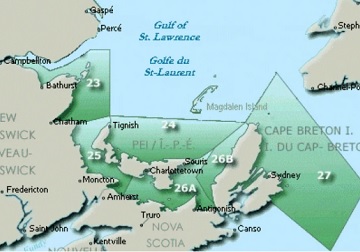
Lobster fishing season in the southern Gulf of St. Lawrence will open on Tuesday
The Department of Fisheries and Oceans announced on Saturday that lobster fishing areas 23, 24, 26A and 26B South will open on May 3 at 6 a.m. That includes areas along the northeastern coast of New Brunswick, the north shore of P.E.I., the western coast of Cape Breton, and part of the Northumberland Strait. The season was supposed to start on Saturday, but earlier this week the DFO postponed the opening due to the weather and the need for dredging at many harbours. >click to read< 19:40

Missing Digby County man found dead in Sissiboo River
Graham Cromwell, a lobster fisher from Weymouth Falls, N.S., who went missing in the Sissiboo River on Wednesday, has been found dead about a kilometre away from Gates Lane crossing. According to an RCMP news release, Cromwell’s body was located at 5:30 p.m. AT on Friday. Police were informed on Wednesday that Cromwell, 48, had entered the river near Gates Lane crossing but was not seen exiting. >click to read< 11:38
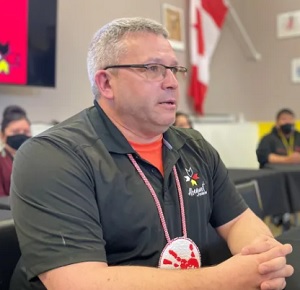
Abegweit First Nation won’t launch treaty lobster fishery off P.E.I. this year
The community held a press conference on Friday saying it is still negotiating with DFO to get an agreement on the fishery, clarifying that it will not follow the decision of Lennox Island First Nation to launch such a fishery without the federal government’s support. Once it finalizes an agreement, Abegweit said it will launch its self-regulated moderate livelihood fishery when the community deems it is the right time. Gould wants to make sure all commercial fishers on the Island realize Lennox Island and Abegweit are separate communities, and Abegweit is conducting its own negotiations with DFO independently. Abegweit First Nation fishes commercially using communal licences owned by the band, and the chief said he is proud of the relationships his community has built with non-Indigenous harvesters in the surrounding area. >click to read< 18:07
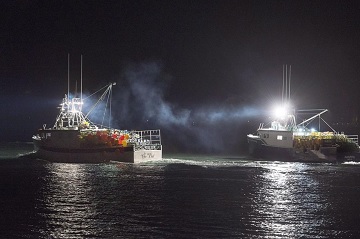
Search continues for Nova Scotia fisherman who jumped in river after DFO intervention
The search for a missing 48-year-old lobster fisherman who jumped into a river in Digby County continues today. Graham Cromwell from Weymouth Falls, N.S., was last seen by Fisheries Department inspectors jumping into the Sissiboo River Wednesday night. A Fisheries Department spokesperson says Cromwell and three others were fishing near Weymouth Falls around 9 p.m. and allegedly fled when two fishery officers attempted to carry out an inspection. >click to read< 15:40
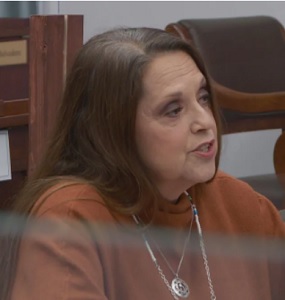
P.E.I. – Lennox Island First Nation to launch unauthorized treaty lobster fishery
The Lennox Island First Nation says it will be launching a treaty lobster fishery off P.E.I.’s North Shore next week with or without the federal government’s support. The First Nation has a clear treaty right to harvest lobster for a moderate livelihood without the federal government’s approval, a right affirmed by the Supreme Court of Canada in the 1999 Marshall ruling. The First Nation intends to launch the treaty fishery on Saturday, May 7, weather permitting. On Thursday afternoon, the provincial fishermen’s association issued a written release, calling it “unfortunate” that discussions between the federal government, non-Indigenous fishing associations and First Nations have not taken place to discuss the requirements further. >click to read< 17:09
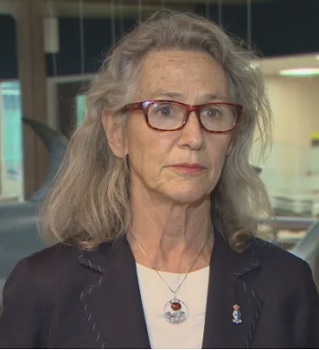
DFO: ‘no plan’ to cut commercial lobster catches to implement treaty fishery
The issue has swirled through Maritime coastal fishing communities since the federal government relaunched a voluntary commercial licence buy-back program last year to make room for more Mi’kmaw access, so far without success. The departmental statement followed a response from Fisheries Minister Joyce Murray to Conservative fisheries critic Rick Perkins during Question Period Monday. “DFO sources tell me the minister was about to expropriate 15 per cent of lobster traps from licence holders, without compensation, to give to First Nations,” Perkins said Monday. “This would be devastating for these fishermen. >click to read<13:43
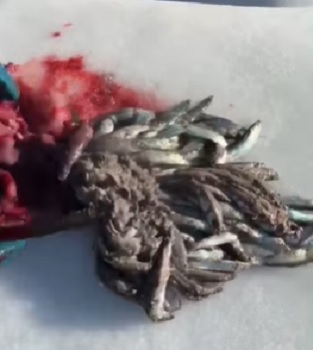
DFO says seals not having a significant impact on lobster bait stock
With mackerel and herring fisheries, key sources of bait for lobster fishermen, shut down this spring, some lobster fishermen are casting the blame on growing seal populations in the Gulf of St. Lawrence. P.E.I. lobster fisherman Charlie McGeoghegan suggested targeting the fishery is the wrong approach. “The seals have caused this problem and DFO has ignored it for over 25 years, because we’ve been telling them the whole time that their population is exploding and we know what they eat, based on science. They open them up and we know that they eat herring and mackerel and lots of it.” >click to read< 10:23
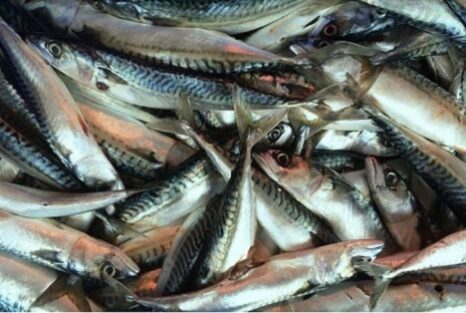
Mackerel fishery closed, but inshore fleet still wants their licenses
Seaward Enterprises Association of Newfoundland and Labrador (SEA-NL) is calling on Fisheries and Oceans to continue issuing mackerel licenses to existing license holders in the inshore fleet even though the fishery is closed. “Owner-operators want to know their mackerel licenses are safe and will be there for them when the fishery reopens,” says Ryan Cleary, Executive Director of SEA-NL. “Many of them do not trust DFO, there’s no other way to put it.” “A mackerel license represents a major investment of many thousands of dollars — not just for the license itself — but in terms of the fishing enterprise and gear, and owner-operators want to keep their licenses even if it is just for the privilege of not fishing them.” >click to read< 10:13
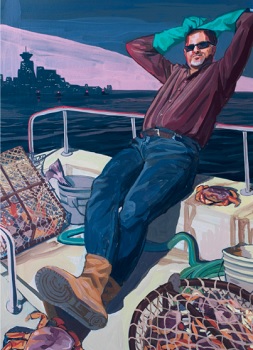
The hunt for B.C.’s most notorious fisherman
Every year, officers in the DFO’s Pacific region collar a handful of serious rulebreakers, some more brazen than others. Scott Steer is in a class of his own, the most prolific poacher on the West Coast. He’s been busted for illegally catching just about every type of fish in the north Pacific: halibut, ling cod, sablefish, crab, prawns and more, amounting to hundreds of thousands of dollars’ worth of quality catch over the years. He has been fined repeatedly, and when that didn’t work, the courts began throwing him in jail, while simultaneously slapping him with an escalating series of fishing prohibitions. When Sanderson’s crew nabbed him that night in Vancouver, Steer was already banned from so much as setting foot in a fishing boat until 2038. Big story, >click to read< 08:03
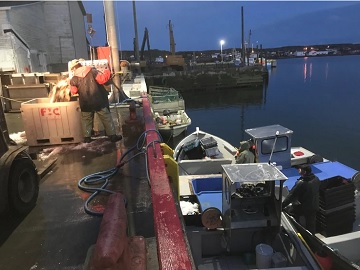
Northern cod 30 years after the moratorium: Confederation’s greatest shame
As the 30th anniversary of the northern cod moratorium looms, DFO cannot say with certainty whether the at-sea fall survey will be completed this year, the small-scale inshore fishery limps on with an average price of 64¢/lb, and the number of active enterprises has fallen to 1,259 — a shadow of the fishery’s glory days when the stock supported 30,000-40,000 workers. On the plus side, scientists with Fisheries and Oceans finally acknowledge that seals “undoubtedly” have an impact on cod — just not as huge as the lack of caplin (which seals also eat by the millions of pounds, but one DFO baby step at a time). >click to read< 08:02
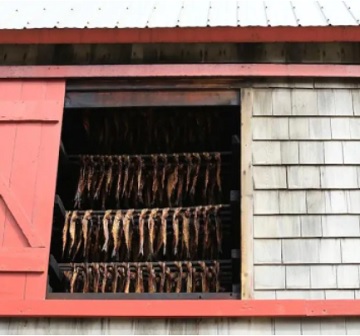
‘No smoke in the smokehouse’ on the Magdalen Islands after herring ban
The smell of smoked herring is a familiar scent along the shores of the island of Havre aux Maisons, part of the Magdalen Islands, where the Fumoir d’antan has been smoking the fish since 1942, but the tradition won’t be able to continue this summer. It’s the first time the company’s flagship smokehouse will be out of operation since the Department of Fisheries and Oceans (DFO) announced last month it would be suspending springtime herring and mackerel fisheries along the coastal waters of Quebec and Atlantic provinces until at least 2023. >click to read< 20:19
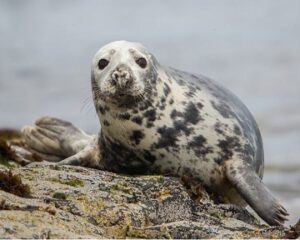
Why Canada shuttered some mackerel and spring herring fisheries in Québec and Atlantic Canada
The announcement by the Department of Fisheries and Oceans to suspend fishing for Atlantic mackerel and spring herring in the southern Gulf of St. Lawrence made waves as the fishing season opened. This decision will have repercussions on the fishing industry at several levels since these species are fished not only for commercial purposes, but are also used as bait in the lobster, snow crab and Atlantic halibut fisheries. The latest stock assessment of Atlantic mackerel and spring herring in the southern Gulf of St. Lawrence revealed high mortality rates among adult fish. In addition to high fishing pressure, the natural mortality of fish by predation also increased rapidly, The grey seal, now 16 times more abundant than in the 1960s, is the main predator of herring. >click to read< 18:38
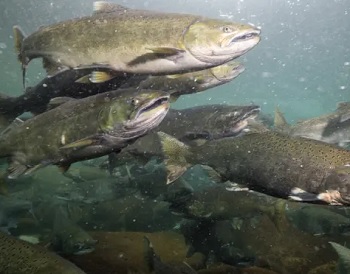
Canada ignored warnings of virus infecting farmed and wild salmon
Canada was warned in 2012 by its own scientists that a virus was infecting both farmed and wild salmon, but successive governments ignored the expert advice, saying for years that risks to salmon were low. Justin Trudeau’s government has said it will phase out open-pen industrial fish farms off the coast of British Columbia by 2025. But both his government and the previous Conservative government were in possession of a newly released report that linked large-scale farms and wild salmon to the highly contagious Piscine orthoreovirus (PRV). In 2012, biologists with the department of fisheries and oceans investigated the presence of the virus, which has been found in both farmed and wild salmon. but successive governments ignored the expert advice, saying for years that risks to salmon were low. >click to read< 11:48
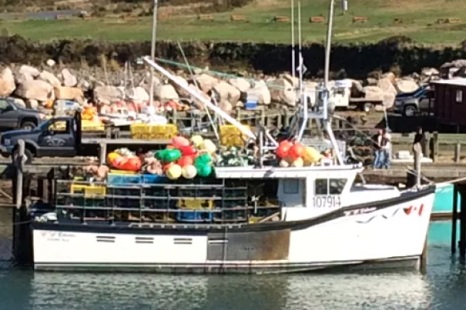
Federal court dismisses DFO appeal of ruling in fisherman’s licence fight
The Federal Court of Appeal has dismissed an appeal by Fisheries and Oceans Canada against a federal court judgment involving a lobster fisherman’s charter rights on Friday. Parkers Cove lobster fisherman Dana Robinson, 60, has a disability that limits his ability to stand on a boat for long periods of time. He was operating his boat in the Bay of Fundy under a DFO provision that allows fishermen to designate a substitute operator once they provide adequate medical proof of their condition. The provision only allows the substitution for five years. An extension was denied in 2019. >click to read< 11:42
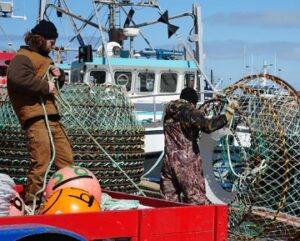
Quebec crabbers angry at DFO
Quebec crabbers who frequent the southern Gulf fishing areas, including large area 12, planned to leave during the weekend. Everyone was ready, on the Islands as in the Gaspé, assure with one voice the president of the Association of Gaspesian crabbers, Daniel Desbois, and Paul Boudreau, representative of the traditional crabbers of the Islands. The factories too, adds the director of the Quebec Association of the fishing industry, Jean-Paul Gagné. According to Paul Boudreau, Fisheries and Oceans informed them that the Coast Guard was not ready and that there was still ice in the gulf. The crabbers and processors of Quebec, who are campaigning for an early opening of the fishery in the spring to avoid interactions with the right whale, are outraged. >click to read< 09:17

Immediate closure of herring and mackerel fisheries a broadside into coastal fishing communities
The Coalition of Atlantic and Québec fishing organizations questions the rapidity of the government decision and the lack of transparency in the science. “How do you go from a no closure to a closure situation without consulting commercial fishers,” said Martin Mallet, MFU Executive Director. “The 2021 stock assessment showed that the 4000t quota would enable recovery of the resource. This decision had been taken in collaboration with industry, and we were to revise the situation after the next stock assessment in 2023. Without consultation or even advance notice of a potential problem, DFO has slammed the commercial fishery.” This unilateral closure of the spring herring and mackerel commercial fisheries will have a major negative impact on the fishery since these fish are a significant source of bait for the lobster and snow crab fisheries. >click to read< 09:16
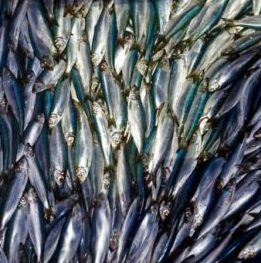
Bait Crisis: Lobstermen worry fishery closures will create bait supply issues
Last week, Fisheries and Oceans Canada shut down commercial harvesting of herring in the Gulf of St. Lawrence and Atlantic mackerel in Atlantic Canada and Quebec amid dwindling stocks. The two species are important sources of bait for the lobster industry. Some Island fishermen say they were caught off guard by the announcement as they prepare for setting day about a month from now. “It’s tough on fishermen because … we need the bait to fish lobster,” said Mallory Harris, who fishes in North Lake. Other fishermen said they’re already seeing the price of bait for lobster traps increase. >click to read< 08:14

Dismal B.C. herring season sparks renewed calls for moratorium
Three days after setting his nets out in the Strait of Georgia between B.C.’s mainland and Vancouver Island, Josh Young headed back home to Pender Harbour. The herring he was expecting to catch were nowhere to be found. “I will be honest… the stocks I saw this year weren’t the healthiest year I’ve ever seen,” Young said. “We didn’t catch our entire quota.” Young wasn’t alone. When the season opened March 3 for boats equipped with seine nets, they scooped up their fill of the silver foot-long fish in 48 hours. By the time Young and hundreds of others using gillnets arrived on March 5, the fish seemed to have disappeared. “It was a different year,” Young said stoically. >click to read< 16:31
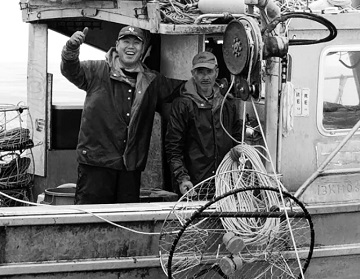
Reallocation: Fed changes to BC crab fishery could bankrupt some commercial fishermen
Commercial crab fishermen in British Columbia fear that changes to the way they can fish for Dungeness crab off the west coast of Vancouver Island could push some small, family operations out of business. This year however, crab fishermen like Jason Voong, 33, may not be able to harvest enough crabs to stay in business following changes announced by the federal government in December to reallocate half of the licenses available in the area to local First Nations. “I fully support, and the fishers support reconciliation, it’s just a process that’s wrong right now the way DFO has treated the commercial fleet and the five nations.” >click to read< 09:41
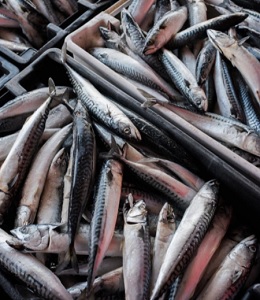
Rising fuel, bait prices could eat into profit margins
Lobster fishers have had to contend with the rising costs of doing business for years, but this season presents a set of circumstances perhaps without compare. Fuel prices are higher than they’ve ever been on PEI and that will have a direct impact on fishers, especially the ones who sail further out from shore. Throw in rising bait prices driven by quotas and feeding predators, and insurance costs, and it could take a sizable big bite out of profit margins. “It’s going to be different from last year for sure. The cost of everything is going up,” said Naufrage lobster fisherman Lucas Lesperance. He hopes those pressures will create a strong price throughout the season. Mr Lesperance said seals are becoming more of a nuisance than ever, chowing down on bait species like herring and mackerel. A seal hunt would certainly help, he said. >click to read< 10:07

Higher Snow Crab Quota in Newfoundland and Labrador in 2022
DFO’s management practices in recent years, supported by evidence-based science advice, favourable ocean conditions, and the stewardship of local harvesters, have rejuvenated the snow crab stock in most areas throughout the Province. Improvements in the stock are likely to continue in the short-term and point to continued growth and a sustainable fishery into the future. For these reasons, Fisheries Minister Joyce Murray, is pleased to announce that the 2022 total allowable catch for the Snow crab fishery in Newfoundland and Labrador will be 50,470 tonnes. This represents a 32 per cent increase from 2021. >click to read< 12:05
 Snow crab quota jumps 30% for 2022 season – For fishermen like Aaron Ferriera, the quota increase is welcome news. “For a lot of fishermen, crab season is the only thing they fish all year-round, especially now with the price of everything skyrocketing. It’s a good thing for sure,” he said. And the cost of doing business is going up. >click to read< 17:13
Snow crab quota jumps 30% for 2022 season – For fishermen like Aaron Ferriera, the quota increase is welcome news. “For a lot of fishermen, crab season is the only thing they fish all year-round, especially now with the price of everything skyrocketing. It’s a good thing for sure,” he said. And the cost of doing business is going up. >click to read< 17:13
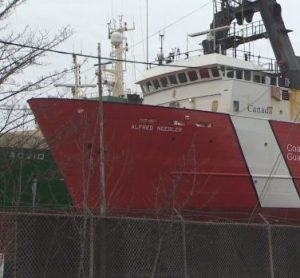
Aging fleet, broken parts force DFO to cancel northern cod stock assessment
As the 30th anniversary of the cod moratorium approaches, the Department of Fisheries and Oceans says it can’t complete research on northern cod stocks because of broken parts on an aging vessel. Mechanical issues on a Coast Guard survey ship has forced DFO to cancel the assessment of Newfoundland and Labrador’s northern cod stock for this year. The department said it had to make changes to data collection in 2021 due to offshore weather and the condition of its research vessels. The situation is also affecting research on the province’s capelin stock, which will see an update this year rather than a full assessment. >click to read< 14:23
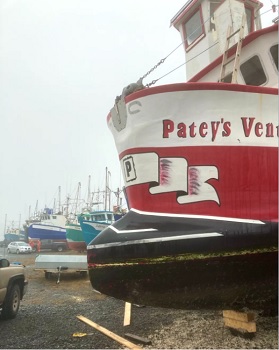
Eastern Canada: Engineers say ditching length limits would mean safer, ‘greener’ fishing boats
Engineers Canada, a national organization that represents professional engineers and engineering associations in each province has declared federal regulations of fishing vessel design an issue of importance. The Fisheries and Oceans rules that were built on the logic of limiting catch capacity have had “unintended consequences”, Vessel proportions have become extreme, with some boats more than half as wide as they are long. McDonald said if Canada is sincere about the goal of fighting climate change and is interested in enabling the fishing industry to adopt fuel-reduction strategies, the vessel length rule needs to be changed. Then there’s the safety issue. photos, >click to read< 14:51
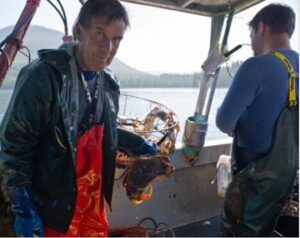
Indigenous rights-based changes to Tofino crab fishery weigh heavily on family-run businesses
Recent changes to trap limits have Dungeness crab fishers in Tofino fearing for their livelihoods. When Dungeness season opens on April 1, commercial crab fishers in Area E (Tofino) must re-allocate 50 per cent of their inside trap allocation and 25 per cent of their offshore trap allocation to five Nuu-chah-nulth Nations. DFO is required to give priority to the Nuu-chah-nulth under an order from the British Columbia Court of Appeal. DFO announced the changes to Area E Tofino harvesters before even consulting with the five Nuu-chah-nulth Nations. Jason Voong, president of the B.C. Crab Fishermen’s Association and second-generation Area E Tofino crab harvester, says the changes are essentially putting the cost of the court ruling on the backs of small, family-owned businesses. >click to read< 17:08

Right whale protection measures to return ahead of migration into Canada
The federal government has announced its fishery and vessel management measures for the 2022 season to protect North Atlantic right whales as the endangered animals migrate into Canadian waters. Officials said in a statement Thursday the Fisheries Department will once again implement seasonal and temporary fishing area closures in the Gulf of St. Lawrence, the Bay of Fundy and other “critical habitat areas” where whales have previously been sighted. They also say Transport Canada is again enforcing vessel traffic measures, including speed restrictions for vessels over 13 metres long, throughout much of the Gulf starting on April 20 to better respond to right whale presence. >click to read< 08:29
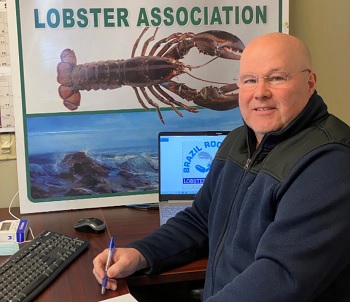
‘Alarm bells’ ring in N.S. lobster fishery decision after DFO’s move involving baby eels
A group representing more than 500 lobster fishermen in southwest Nova Scotia is raising concerns about Ottawa’s commitment to voluntary licence buyouts to increase Indigenous access to the fishery. Late last month, the Department of Fisheries and Oceans cancelled bargaining with commercial licence holders in the elver, or baby eel, fishery, claiming they wanted too much money to exit the business. DFO is now looking at an across the board commercial quota cut for elvers without compensation to make room for Mi’kmaw harvesters. >click to read< 13:23








